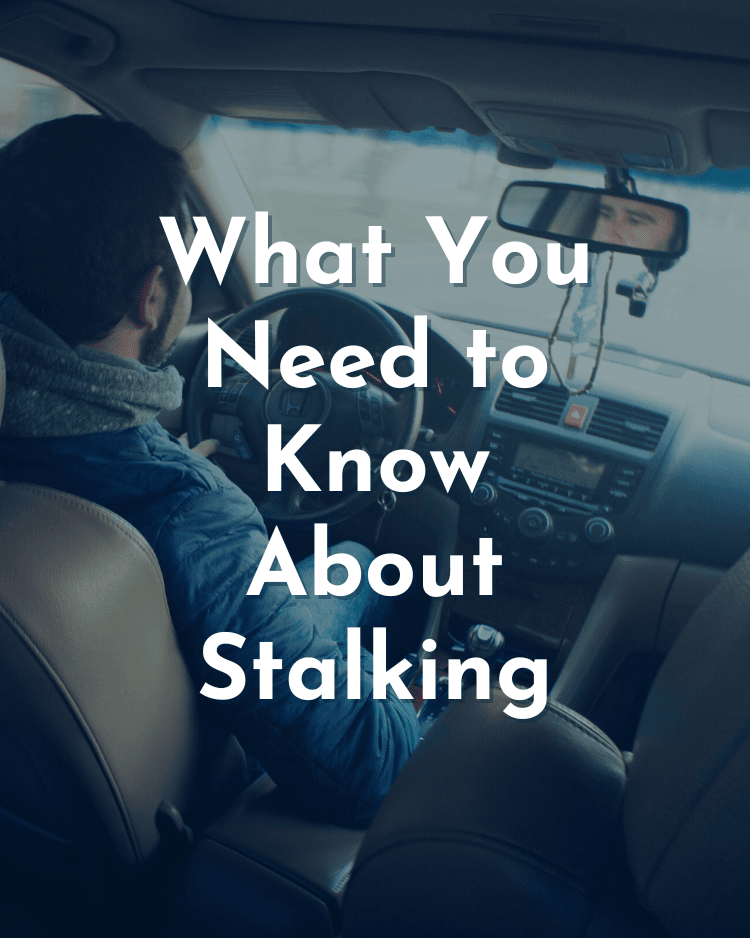
Stalking is more than just undesired attention— rather, according to a study done by the U.S. Department of Justice, stalking refers to repeated behavior that is harassing and/or threatening. More specifically, stalking is a series of behaviors meant to annoy, harass, or alarm an individual. This behavior can be both physical and digital, making it hard for victims to find support.
The Prevalence of Stalking
Millions of people are affected by this often-hidden threat. The Stalking Prevention, Awareness, and Resource Center (SPARC) has stated that 1 in 3 women and 1 in 6 men experience stalking at some point in their lifetimes—an alarming reality that many individuals, including those in our personal lives, may experience this type of victimization.
Many people are not aware of this, but stalking and domestic violence can often be linked to one another. Statistics have shown that many stalking victims are stalked by someone they know, such as a current or former intimate partner. According to SPARC, the Stalking Prevention, Awareness, and Resource Center, approximately 40% of stalkers are current or former intimate partners (SPARC Fact Sheet).
Common Stalking Behaviors
There are various methods by which stalkers invade an individual's privacy and personal life, all of which take an emotional toll on the victim. Many of the commonly used behaviors coincide with one another, meaning they happen at the same time.
Some commonly used tactics include:
- Repeated and unwanted communication through phone, mail, email, text, social media, etc.
- Driving by, or waiting, at places that you frequent such as home, work, or school
- Following you or showing up to places you are without a valid reason to be there
- Sending or leaving unwanted gifts or items at your place of residence or work
- Collecting information through public records, hiring a private investigator, contacting family or friends, etc.
What To Do If You Are Being Stalked
If you are being stalked, here are some steps you can take to protect yourself:
- Document Everything: Keep a detailed stalking log that highlights all unwanted behaviors and points of contact. Keep evidence of anything received by a stalker, but do not engage (i.e., text messages, phone calls, emails, gifts).
- Seek Support: Reach out to your support systems and lean on them. Whether that be family, friends, professionals, or victim services like Faces of Hope, there are people willing to come alongside you through this scary time.
- Take Safety Precautions: This could look like changing your daily routine and habits, collecting safety items such as door locks or pepper spray, and checking your vehicle for tracking devices. If you sense you are being followed, go to a public space such as a police station or grocery store parking lot to ask for help.
- Use Technology Wisely: Turn off all GPS and location services on your phone, as well as all social media platforms.
- Consider Involving Law Enforcement or Seeking Legal Assistance: You can report any incidents of stalking to your local police department if/when you are ready. In the state of Idaho, you may also file a petition for a Civil Protection Order (CPO). The Faces of Hope staff are trained to assist in filing CPOs and have an attorney on staff to answer your legal questions.
- Take Care of Yourself: Stalking can take a huge emotional toll, so it is important to acknowledge that your feelings are valid and heard. If desired, you can reach out to a professional, like a counselor, to process and work through all the emotions that you may be experiencing. You can also practice self-care by finding an activity or hobby you enjoy (i.e., reading, baking, going on a walk, or listening to music).
Stalking, an often silent threat, affects millions of people. It is often glamorized in the media as romantic or heroic, but it is a crime in all 50 states. You or someone you know may be affected by this crime in the future, so it is important to understand the common behaviors associated with stalking. If you sense you are being stalked and unsure what to do, you can always reach out to Faces of Hope by calling (208) 986-4357.
For additional information and safety tips, check out the following resources:
https://www.thehotline.org/resources/stalking-safety-planning/
https://www.stalkingawareness.org/wp-content/uploads/2022/04/General-Stalking-Infographic.pdf
https://titleix.gwu.edu/understanding-stalking-recognizing-signs-and-seeking-support



